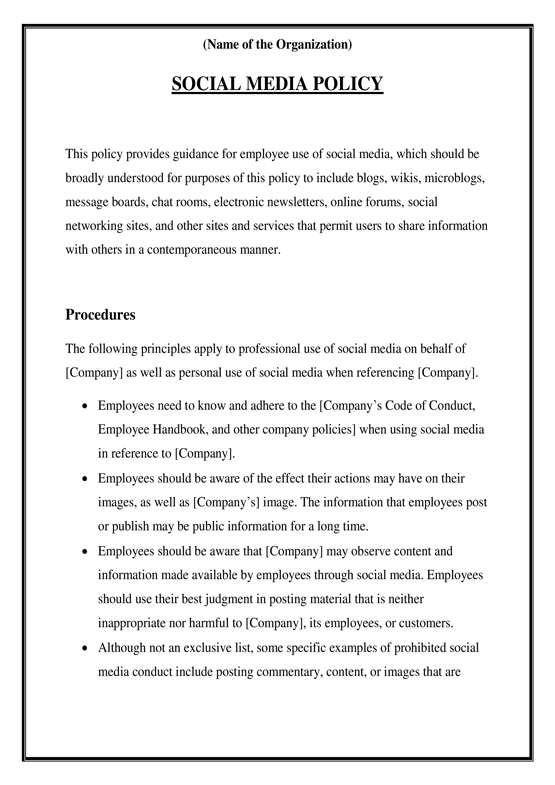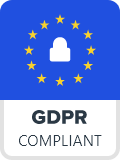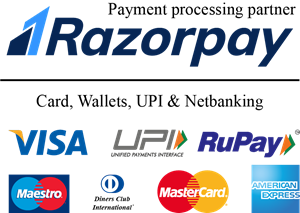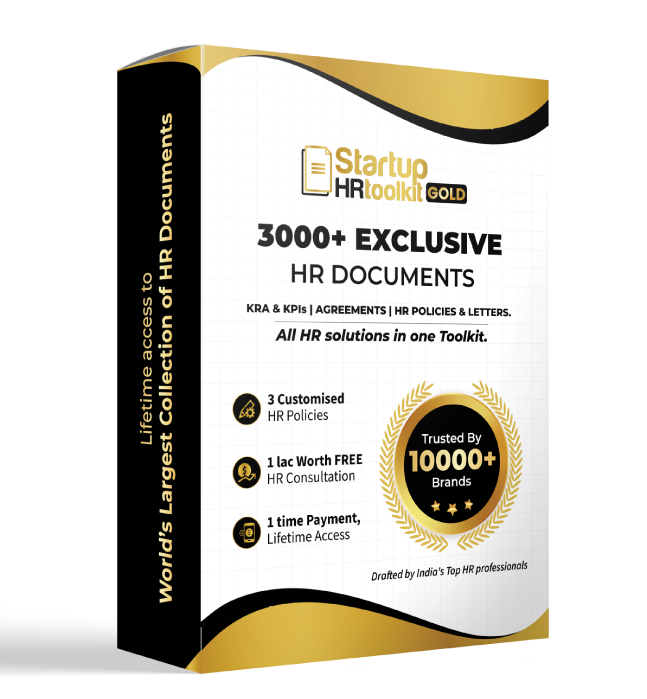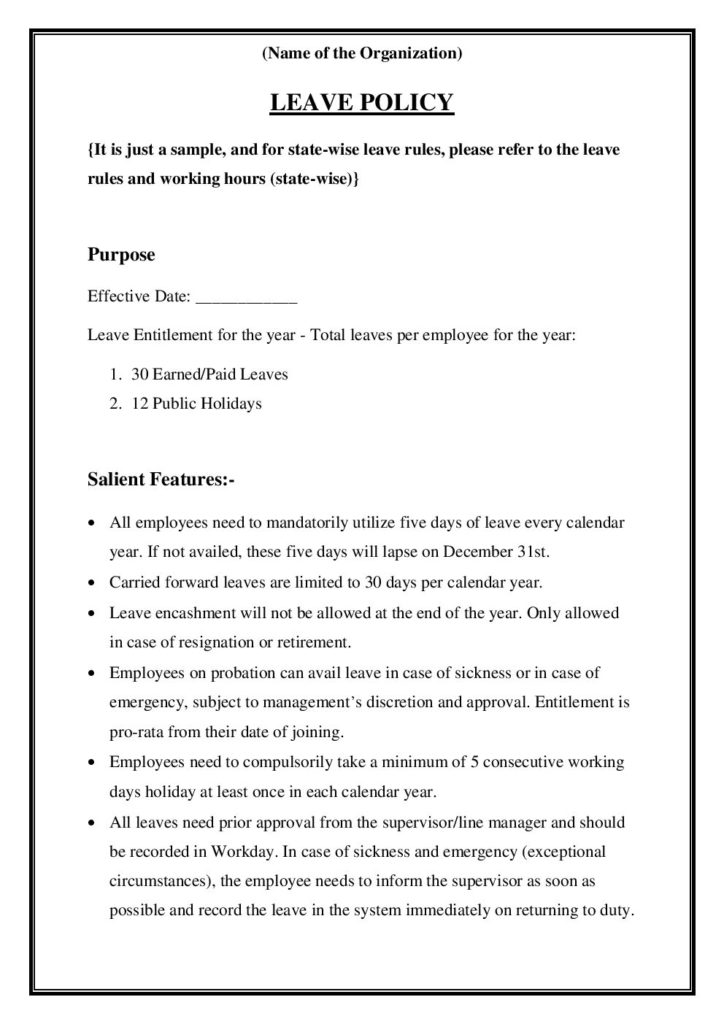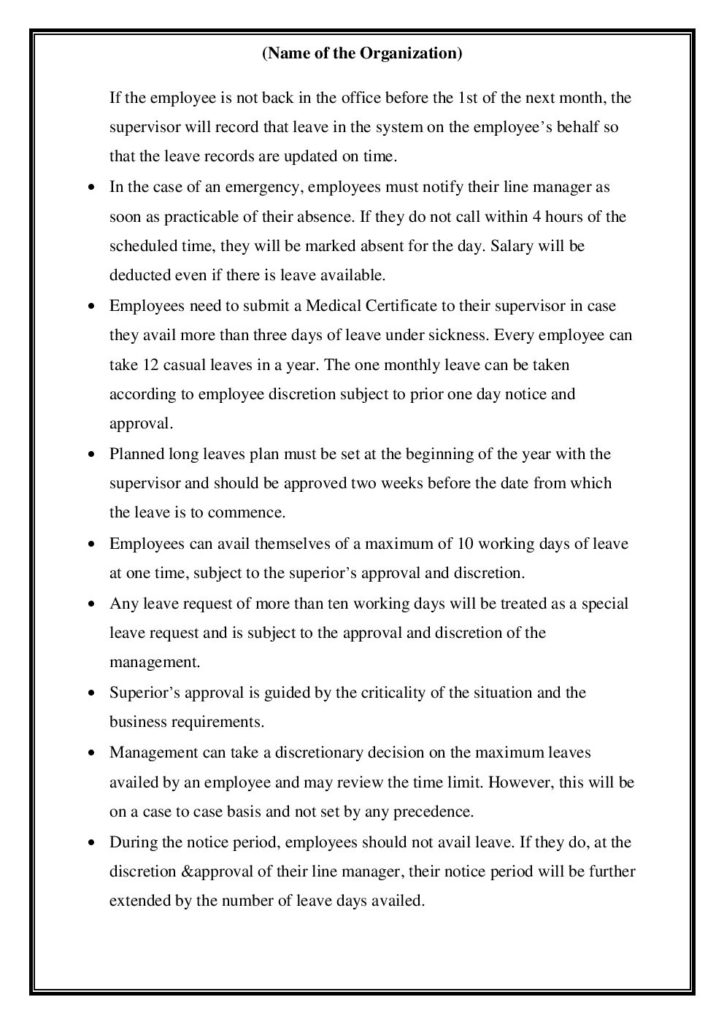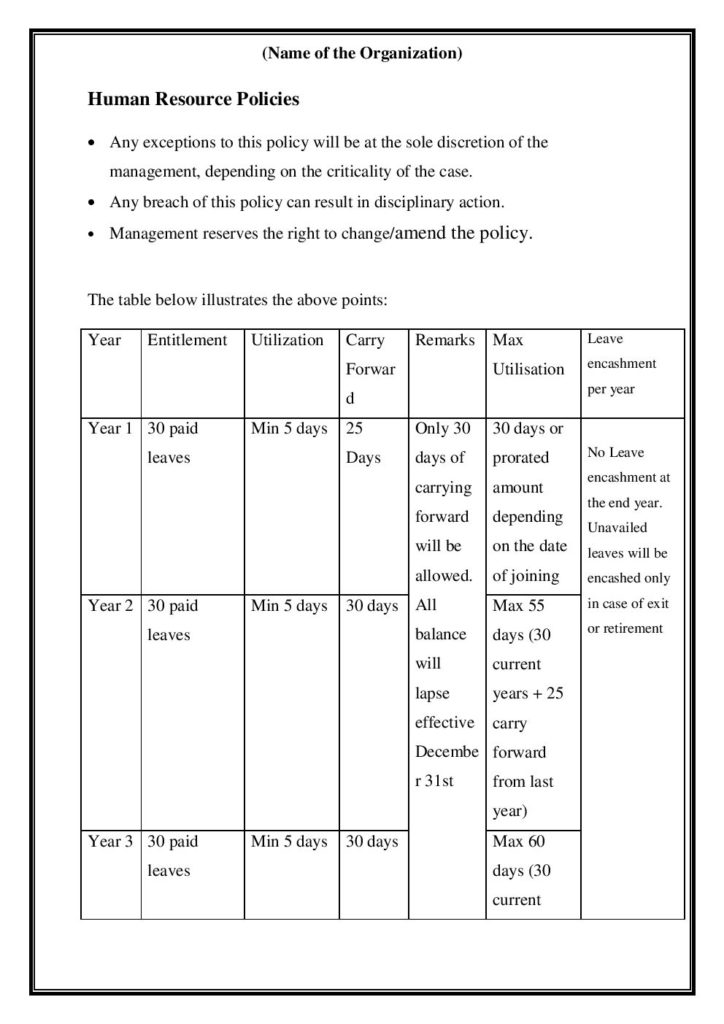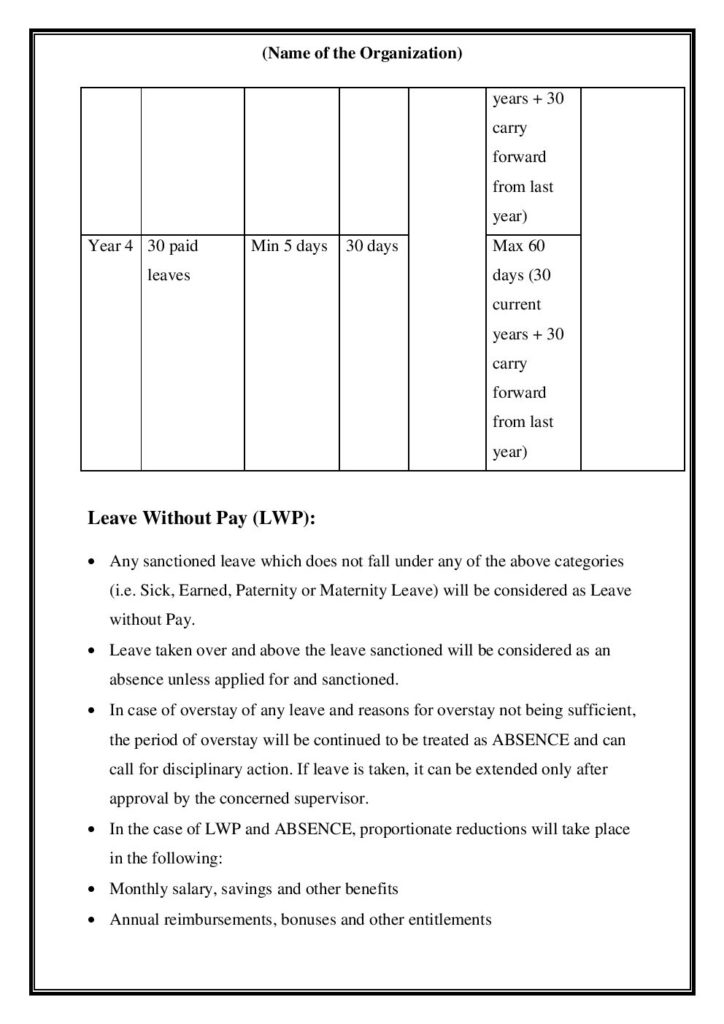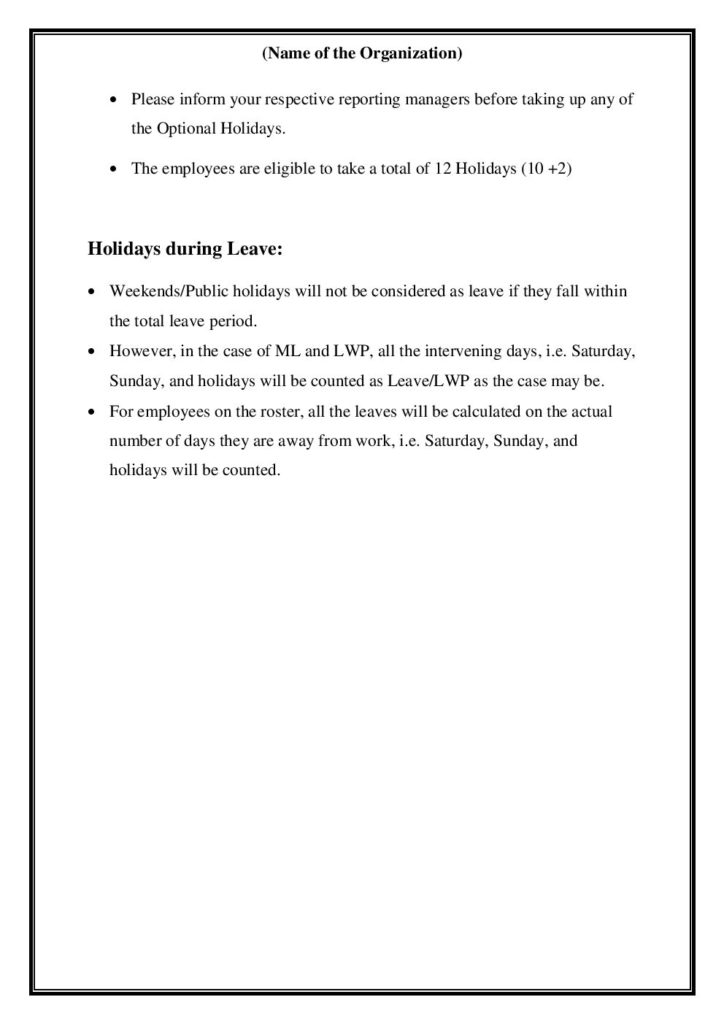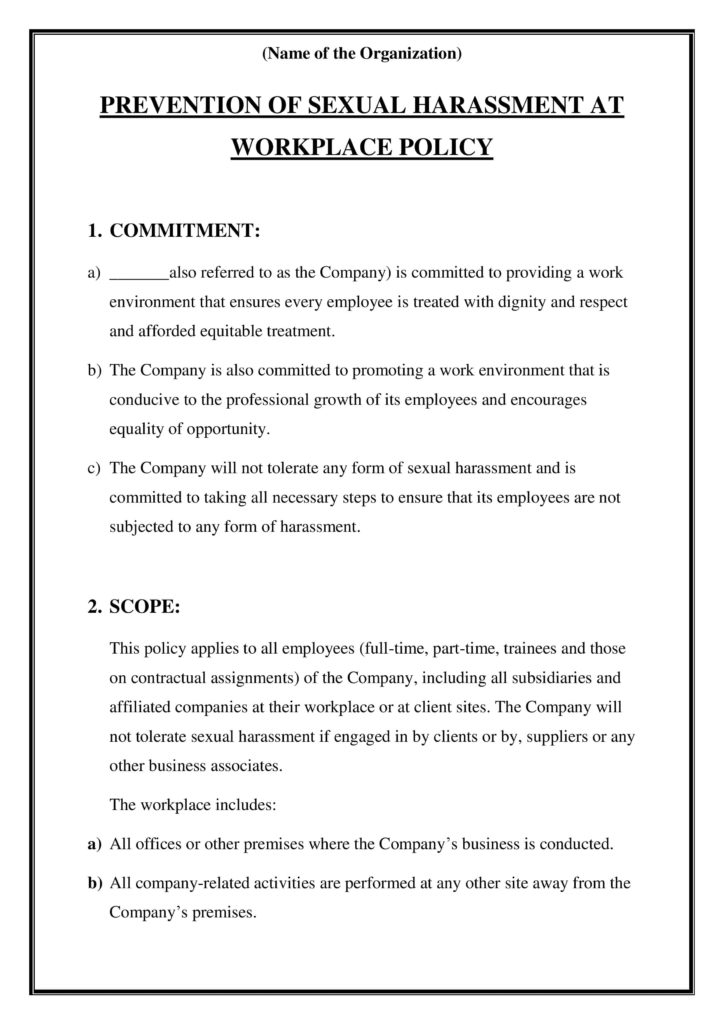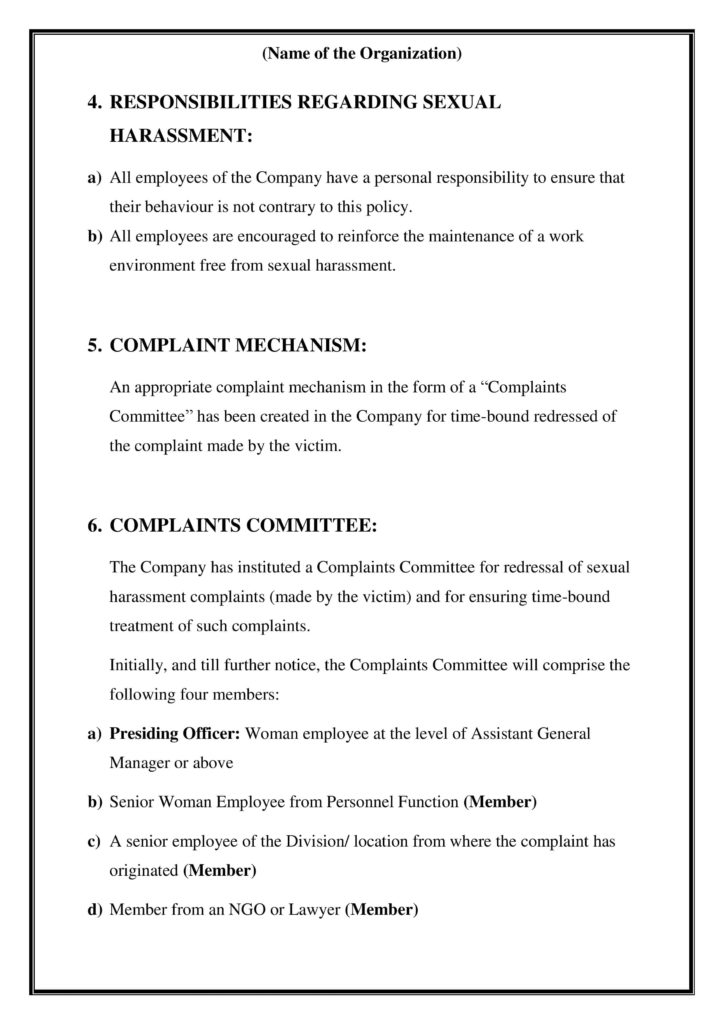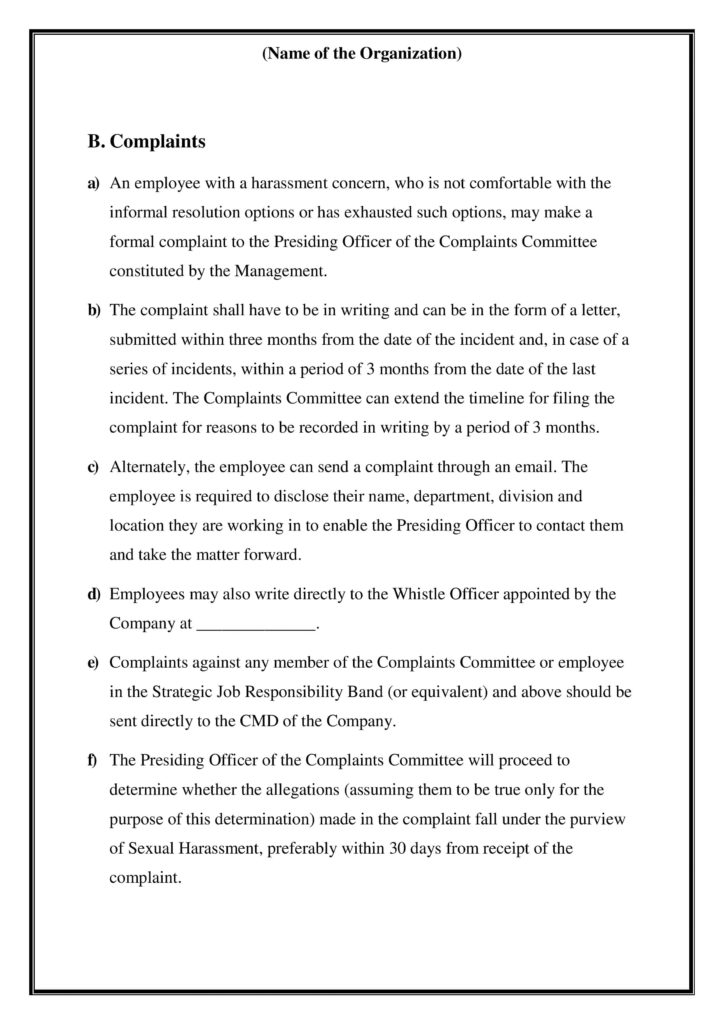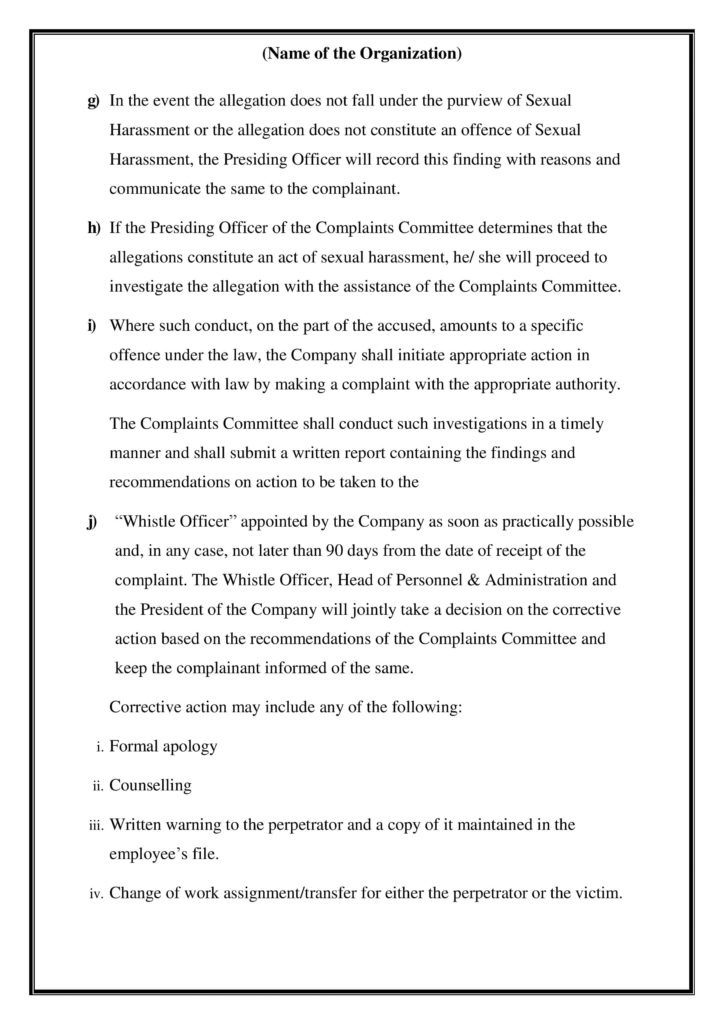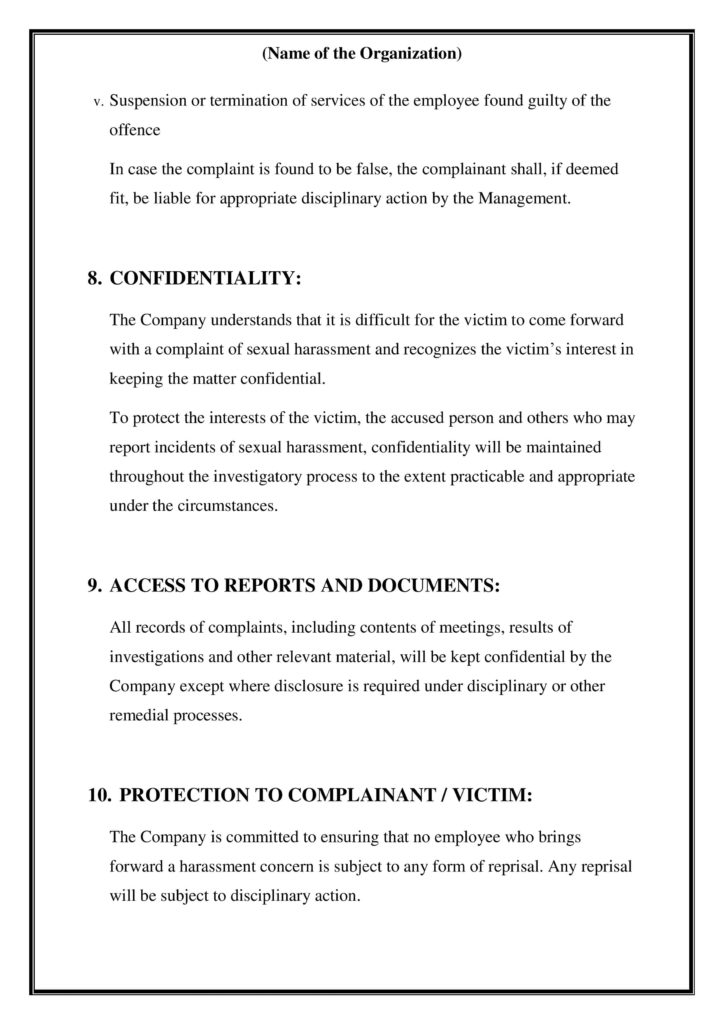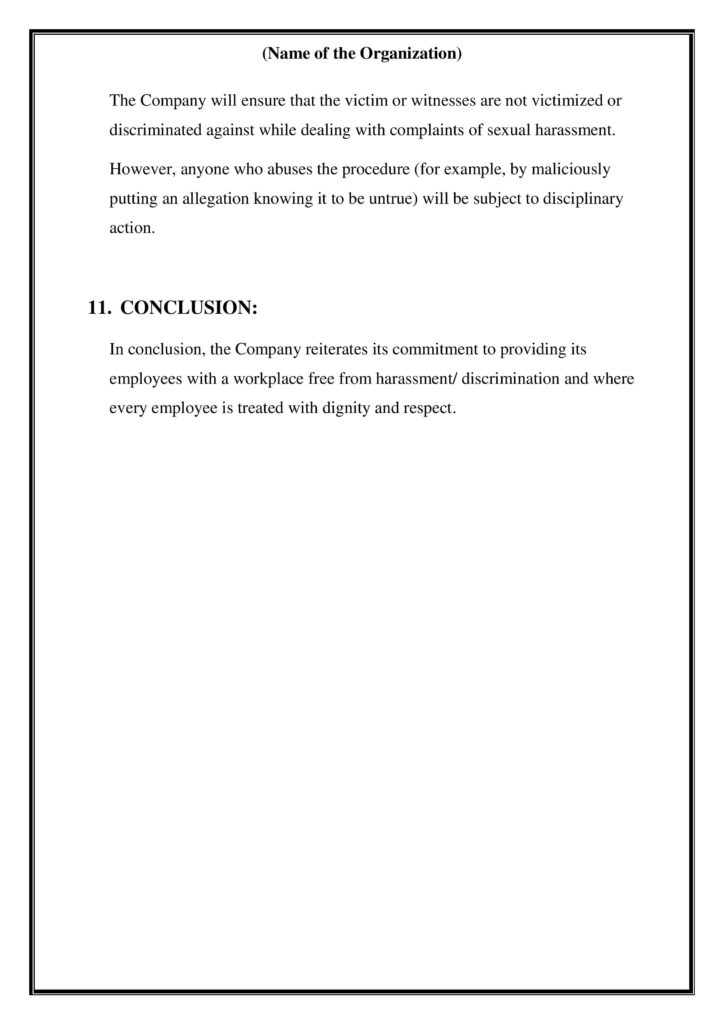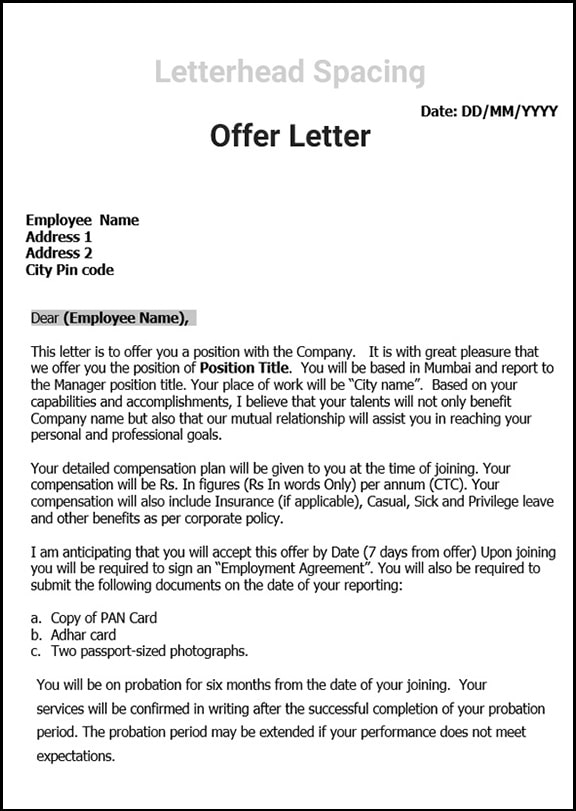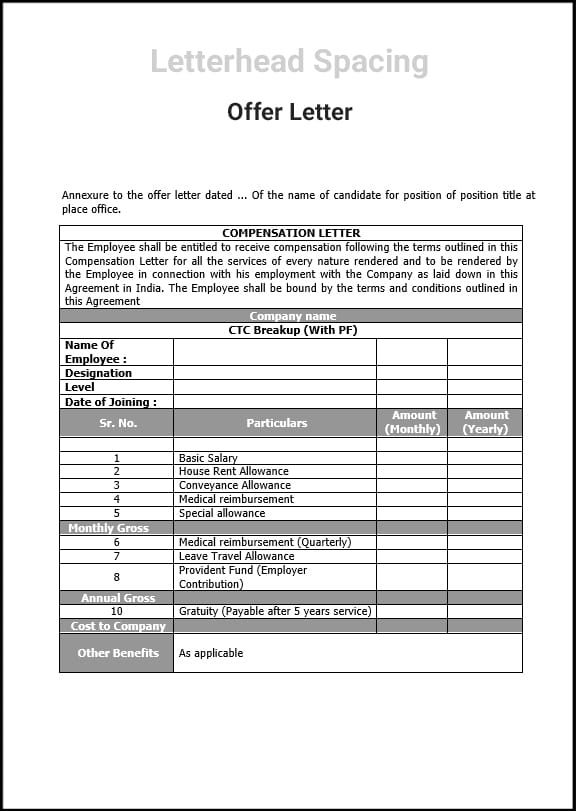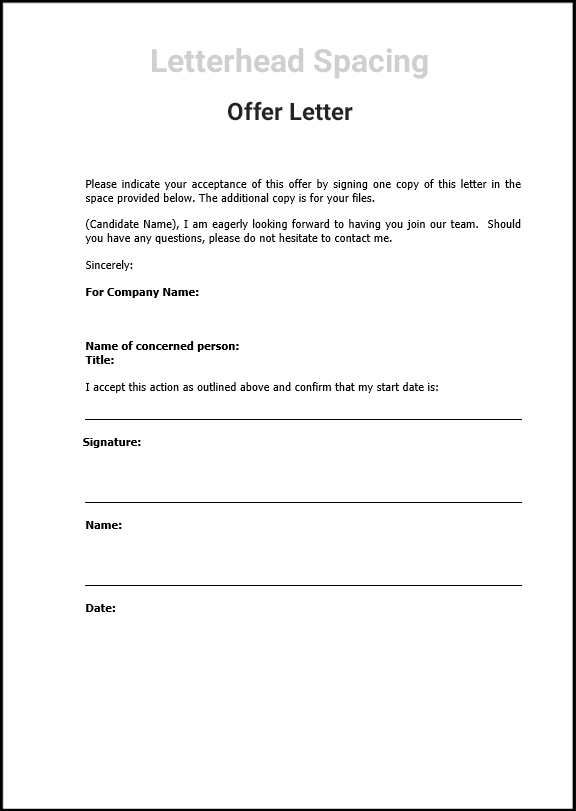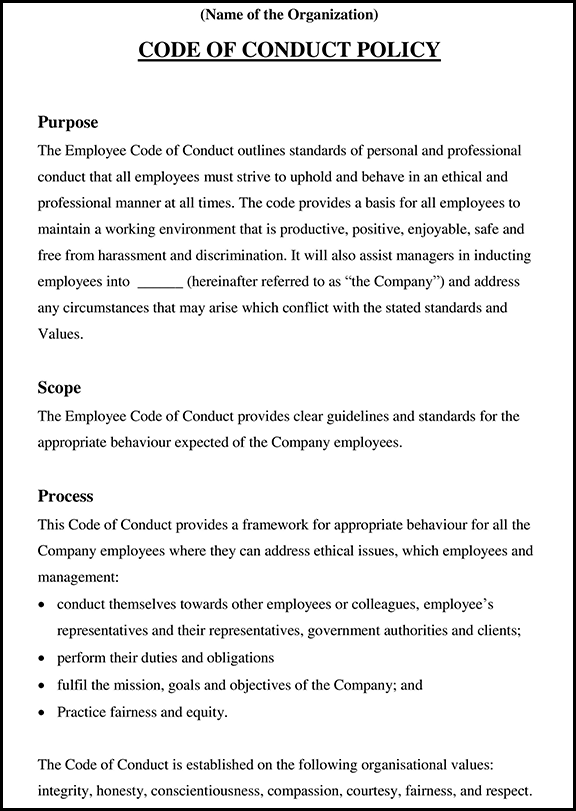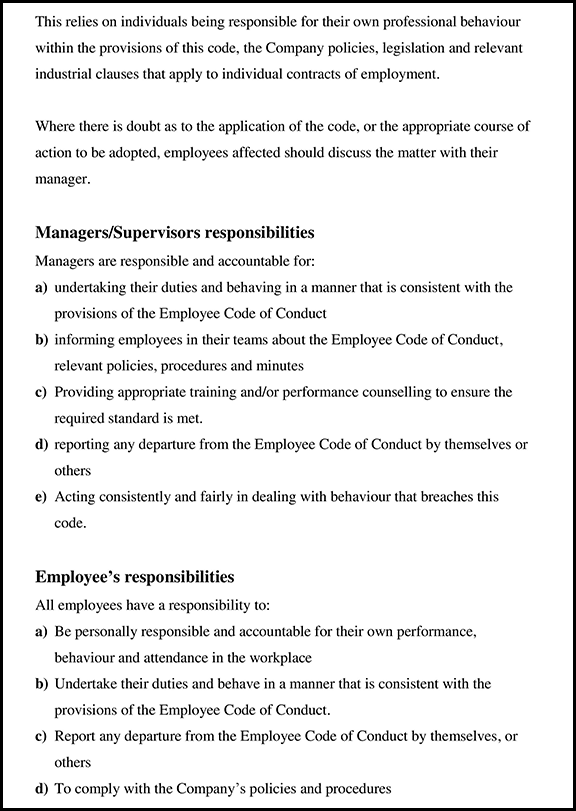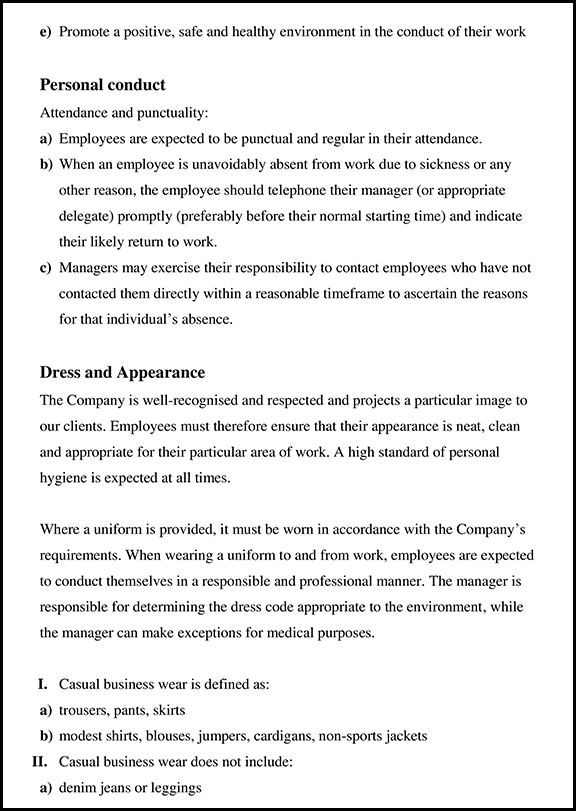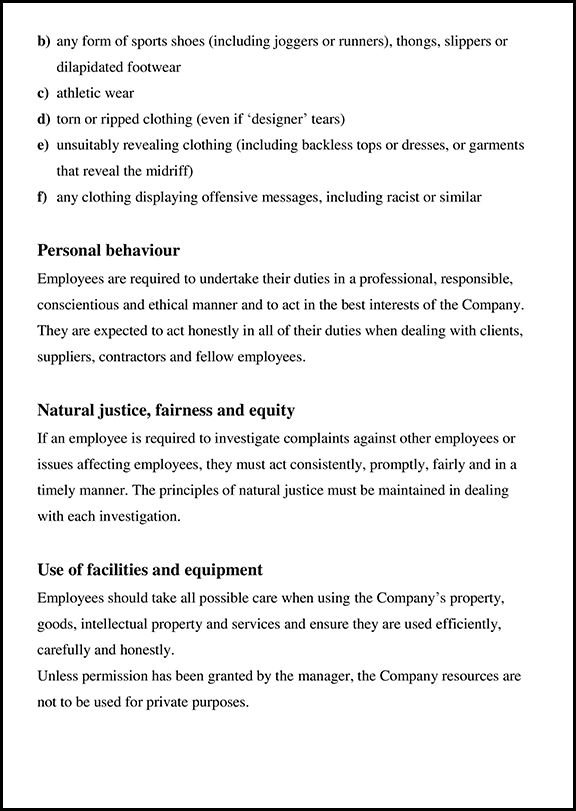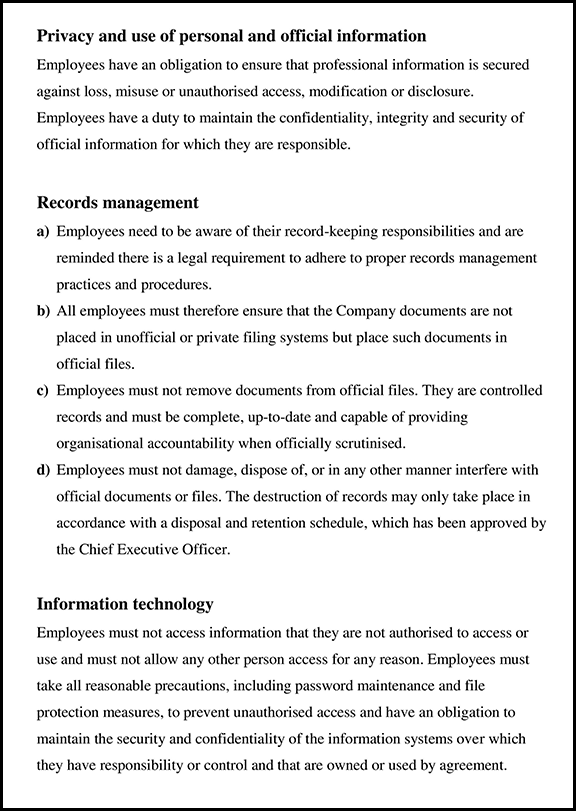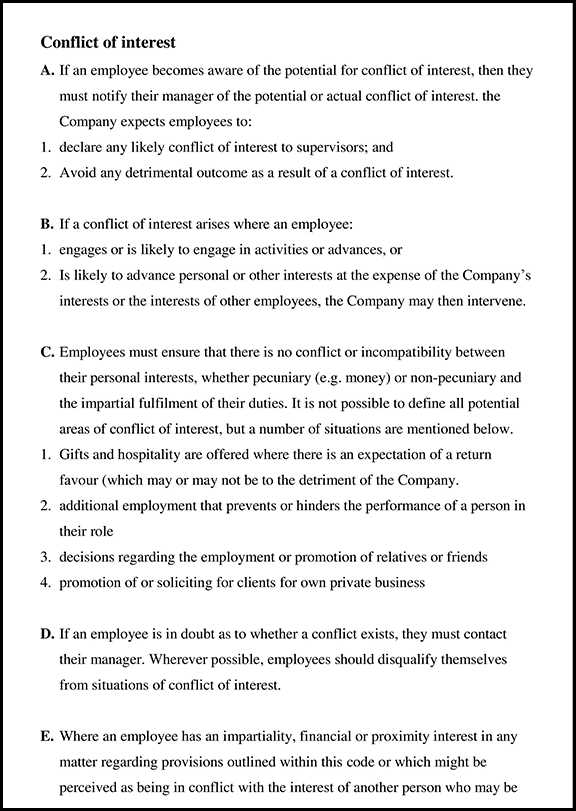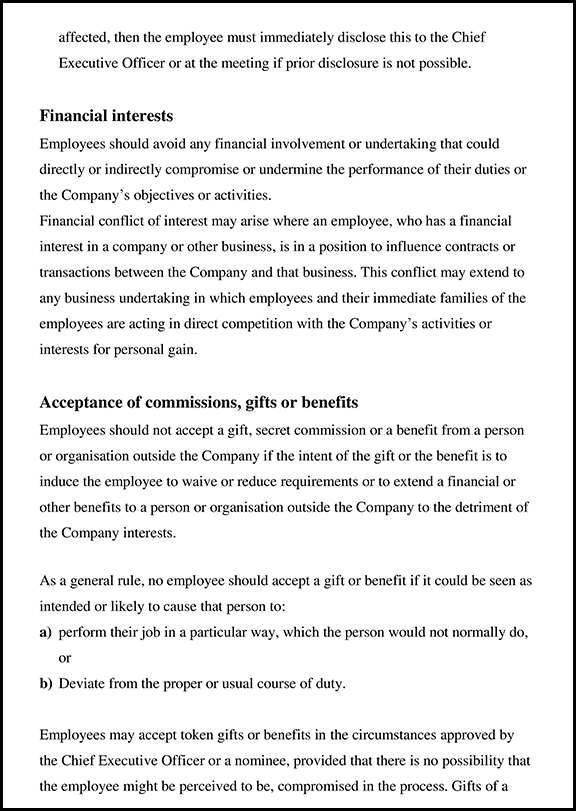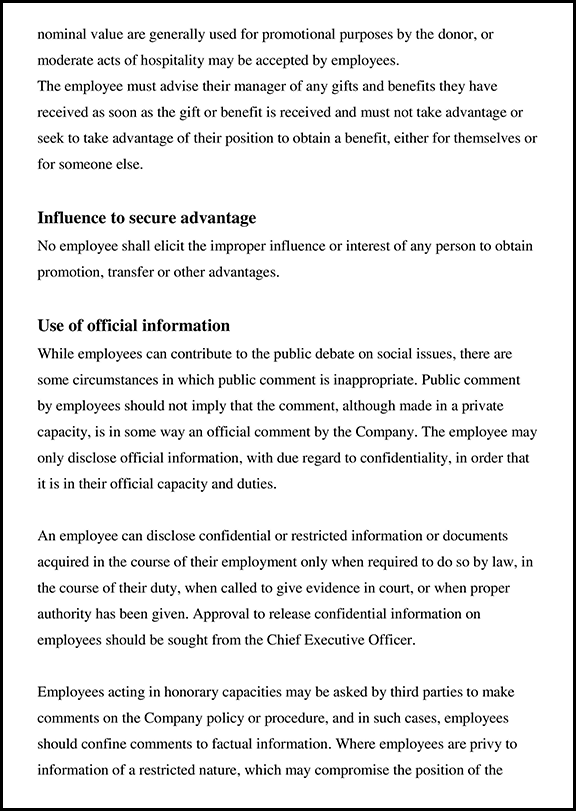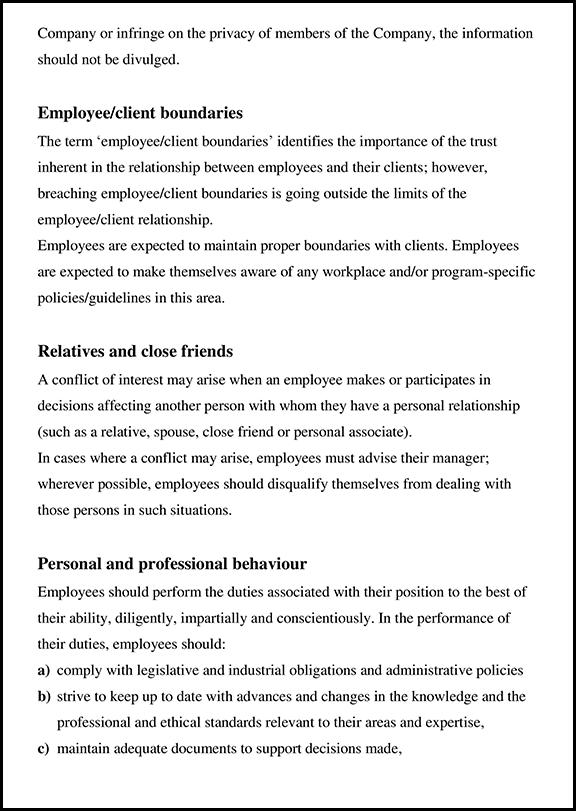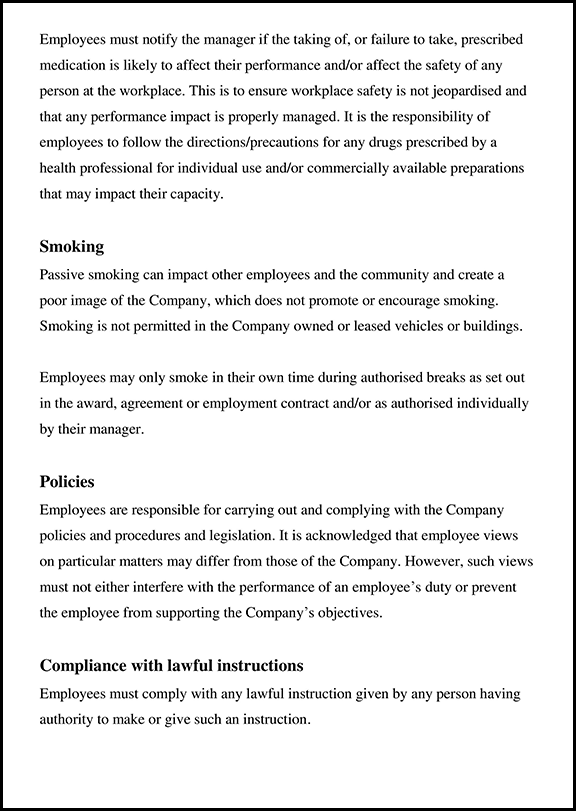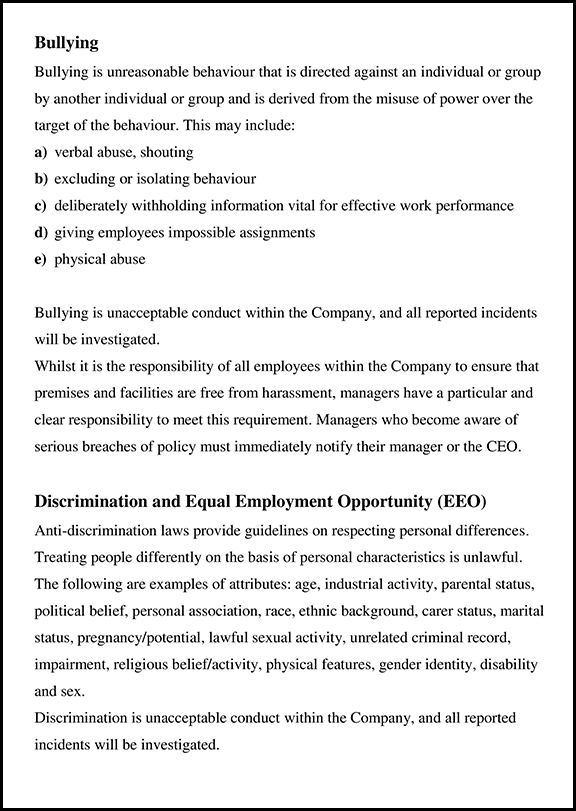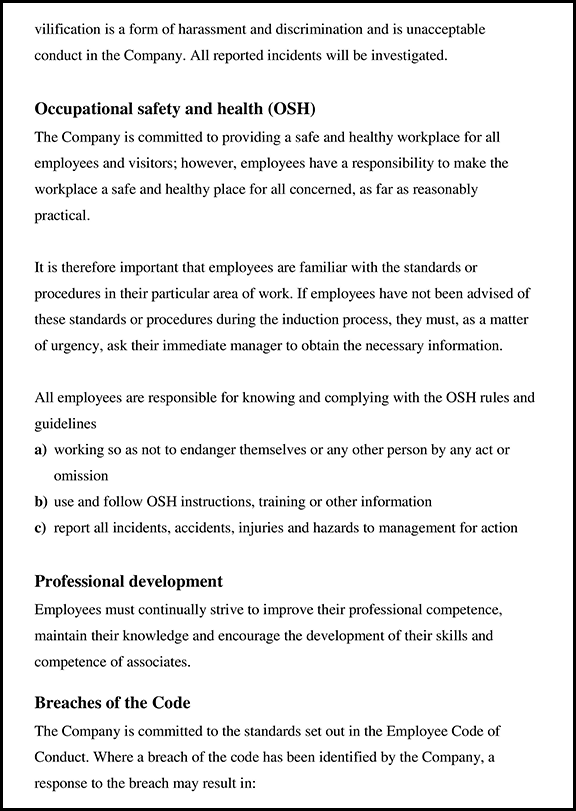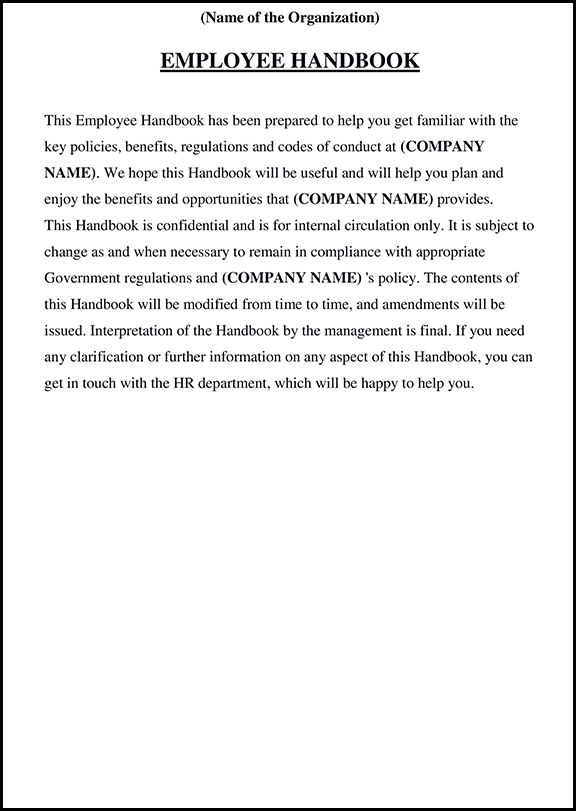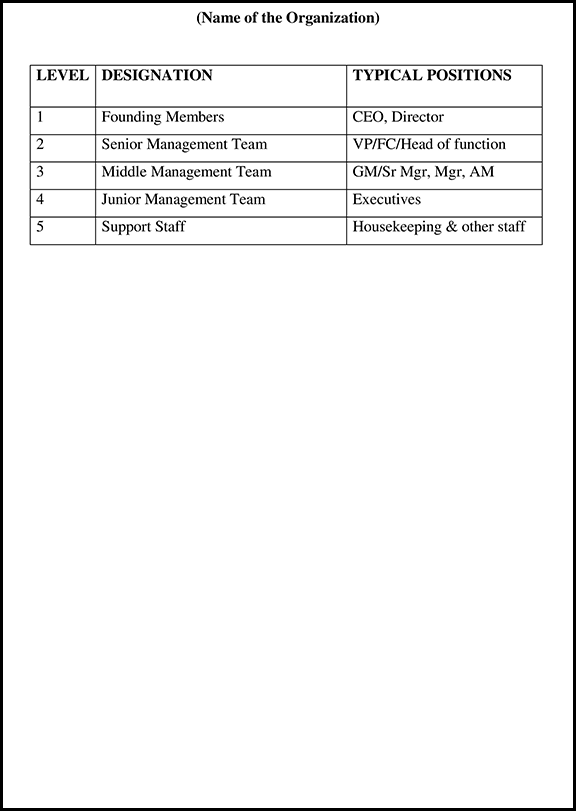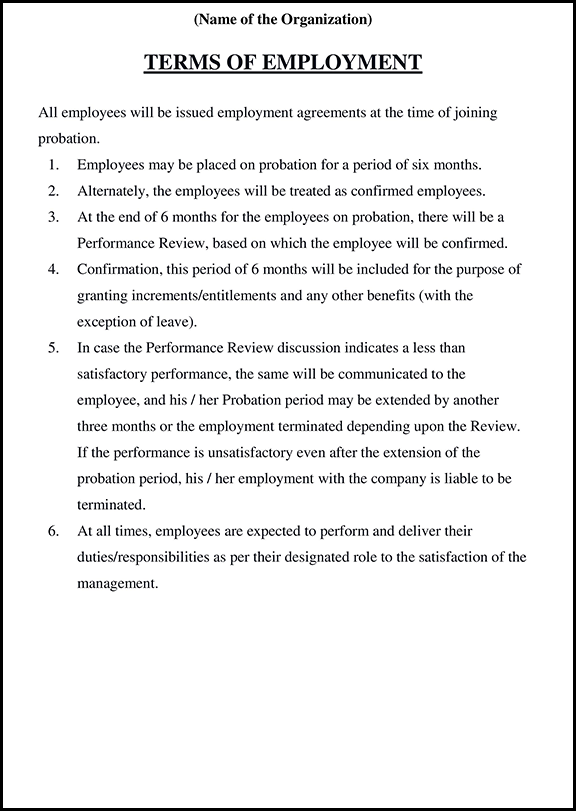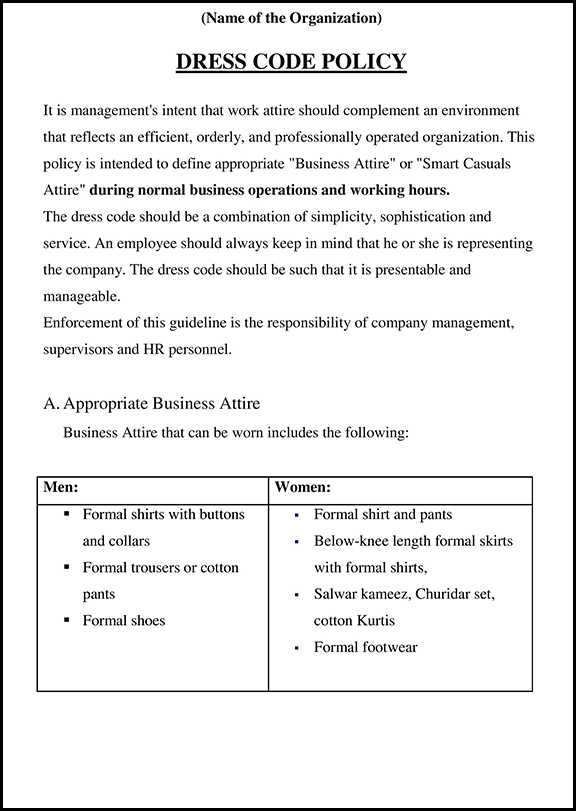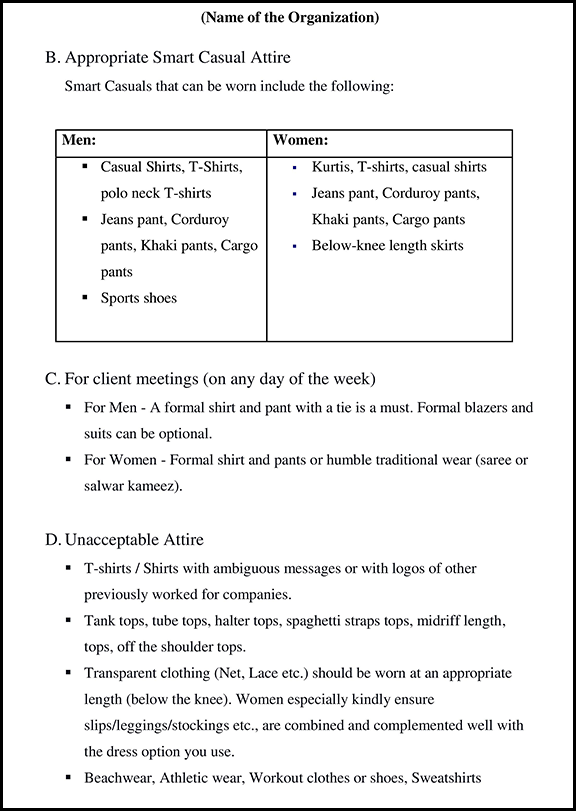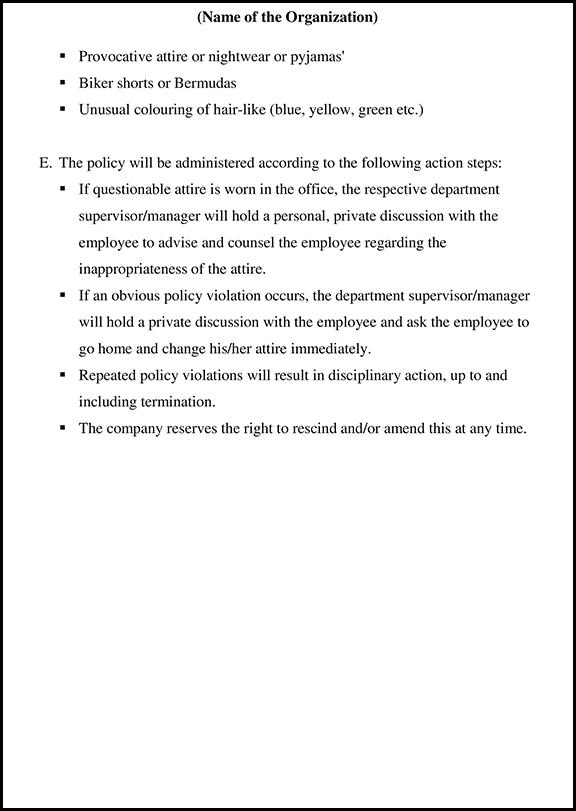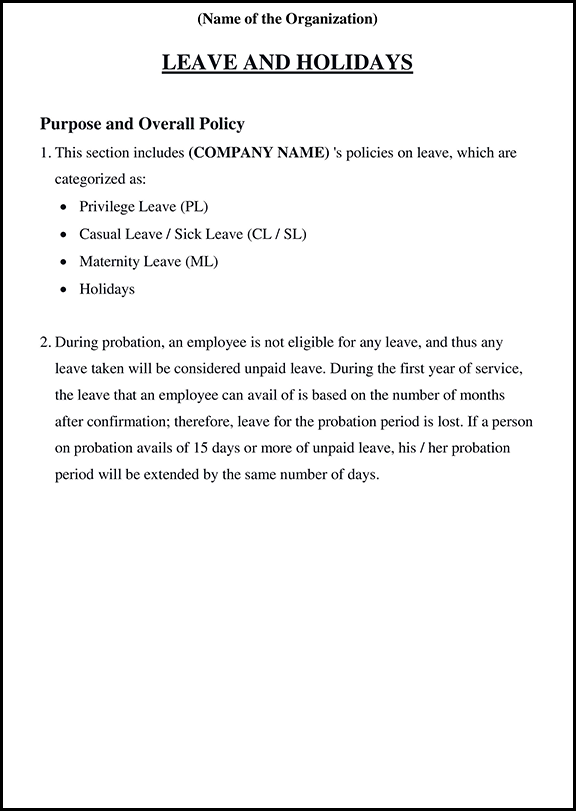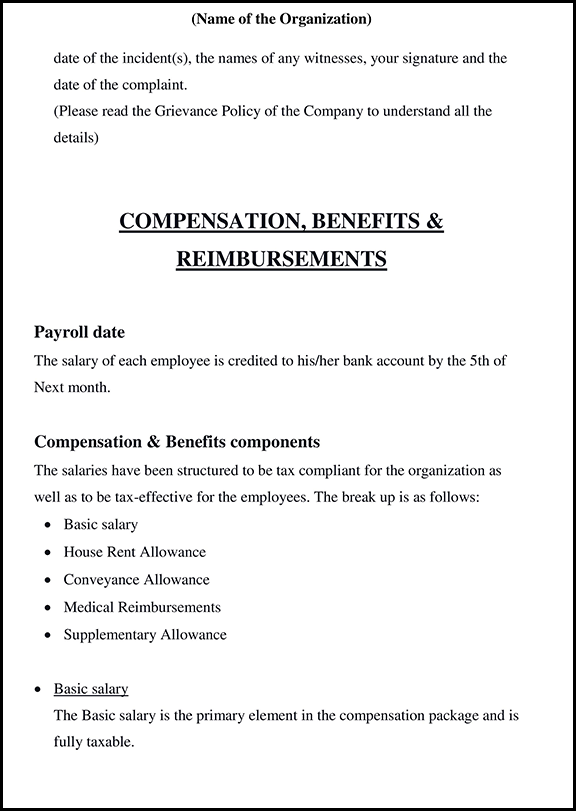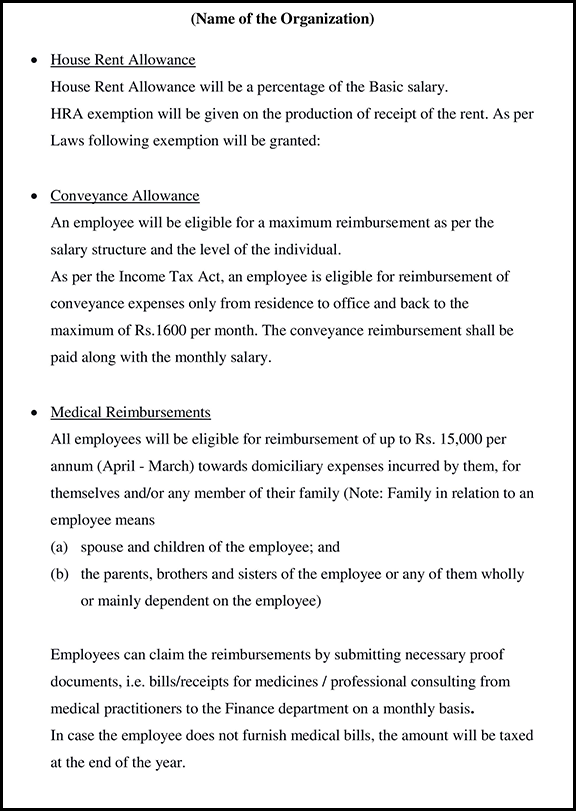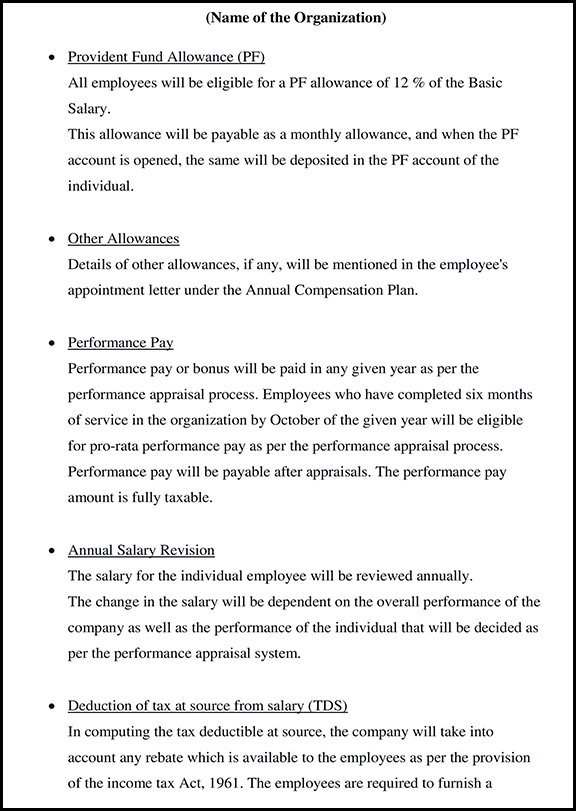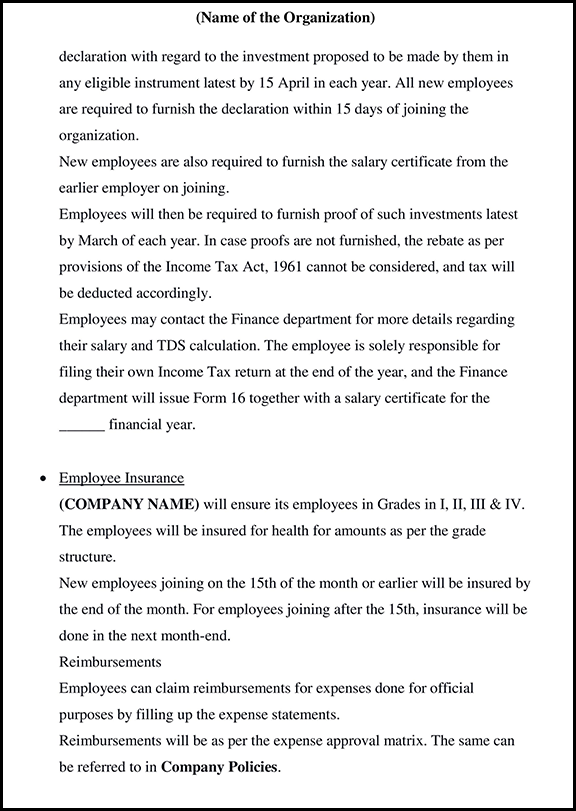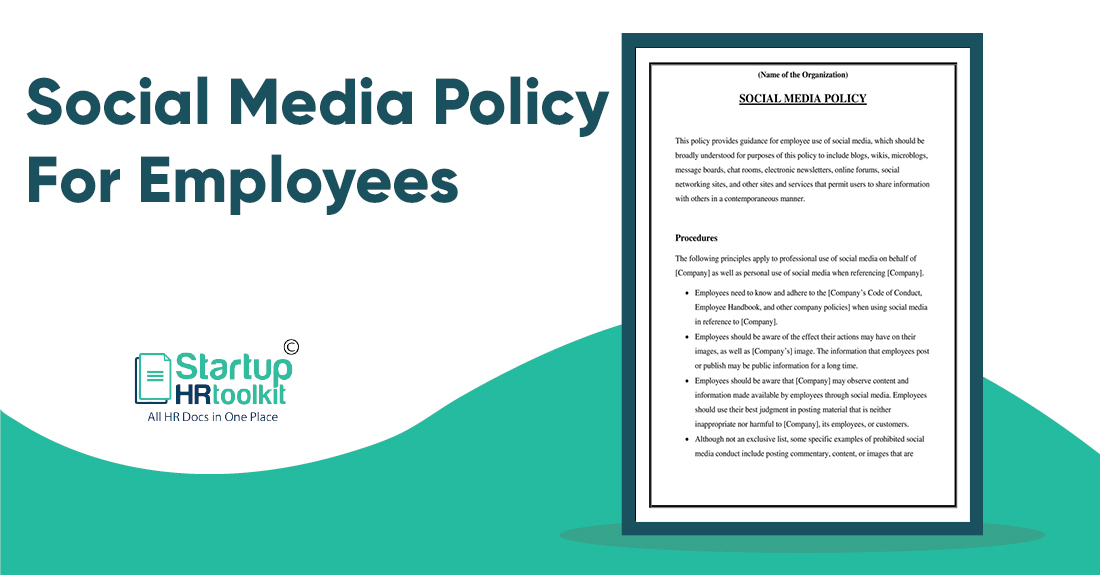
Social Media Policy for Employees
Social Media Policy Sample
What is Company Social Media Policy?
A company’s social media policy is an integral part of its business code of conduct. It provides employees with clear instructions on how to present themselves and the company on social media platforms. The policy establishes guidelines that secure the brand’s privacy, and legal concerns, ensuring that employees adhere to these standards when engaging on social media.
Why do you Need a Social Media Policy?
Every company has a brand voice, and a social media policy lets you maintain your brand voice while restoring your social media risks. Down below are some of the reasons that tell you why you need a social media policy.
1. Creates your Brand Identity Across All Channels
Like every company, you would also have a social media account and a solid social media policy that keeps your identity consistent.
2. Safeguards you from Legal Challenges
With a well-designed policy, you would be protected from legal processes. A strong foundation of policies keeps you on the right track and gives you the right direction, which helps you take action according to the correct approach.
3. Prevents Security Breaches
A strong social media foundation helps you follow suitable protocols and secure you from hacking issues like phishing, improper accounts, dumpster diving, and more.
Social Media Guidelines for Employees
1. Employees should know the company’s employee handbook, code of conduct, and various social media policies.
2. Employees should be mindful of how their actions might affect their and the company’s image.
3. Employees should know that the company might go through the content made available to them by the employees. Therefore, employees should use their understanding of what should be posted on social media and ensure that it isn’t harmful to the company or the employees.
4. Here are some examples of what should not be posted on social media posting commentary, content, or images that are defamatory, pornographic, proprietary, harassing, libelous, or can create a hostile work environment.
5. Employees are not supposed to post anything confidential or not yet published. They should contact the HR department for any questions about what is confidential.
6. To protect the company’s online reputation and brand, all employees must exercise caution when posting online
7. Social media networks like blogs and online content may sometimes generate media or legal attention. There is a proper channel to deal with certain situations, and an appropriate chain of command is supposed to be followed. Therefore, the authorized person is to be informed as soon as the event has occurred.
8. Employees should adhere to established protocols and procedures to guide how to respond to customer complaints, inquiries, and feedback.
9. Workers should obtain the necessary authorization before referring to or posting photographs of current or former employees, members, vendors, or suppliers. Additionally, workers must obtain the required approval before using third copyrights, content with copyrights, trademarks, service marks, or other intellectual property of a third party.
10. Employers should provide training to their employees on the risks associated with social media use to help ensure that their employees understand the potential consequences of their online activities.
How do You Write a Social Media Policy?
Here are the Following Steps to Create Social Media Policy for Employees:
1. Clear Expectations
When discussing the company with the employees concerning social media, tell them what is expected of them and what is acceptable about the company. Employees should be well-versed with the policy, knowing they should not share any explicit content related to the company.
2. Protocols and Security
There are a lot of social media risks present out there. Ensure you establish passwords and protocols and maintain a professional management system for file sharing and chat applications. Personal internet usage while working hours and company belongings like company wi-fi, laptops, phones issued by companies, and more.
3. Roles and Responsibility
Choose a responsible candidate for managing your company’s social media account and policy aspects. For example, your information technology (IT) professional may be the contact for approving and denying access to the social media account of your company. Including names and referred email addresses for prime roles will be helpful, so the employees know who to contact.
4. Create a Crisis plan
One essential part is creating a fully proof-working social media crisis plan.
What Should you Include in your Crisis Plan?
1. An updated emergency contact list includes the number of PR experts, legal and social media teams, and information on the company’s decision-makers.
2. A complete rulebook that guides you in times of crisis.
3. And an approved response while handling the crisis.
Protect Confidential Information
Protecting confidential data is essential for any organization, and implying social media policies for employees ensures that employees understand the importance of safeguarding sensitive information. In addition, through social media policy, the employees understand what confidential data is and the consequences if the data were breached.
1. Business Strategy
Employees should know that sharing information about the organization’s business strategy could harm the company’s competitive structure. Employees should not post anything related to business strategies, mergers, product launches, etc.
2. Client Database
The client database is the most critical information in any organization. The organization could have lakhs of databases and bear huge losses if posted online. Therefore, data should not be shared on social media platforms, as this can lead to data breaches and loss of clients’ trust.
3. Marketing and Sales Plan
Employees must keep the company’s marketing and sales plans, campaigns, or strategies private from social media. If done, it could lead to competitors gaining and damage the company’s reputation.
How To Use?
Fill In The Blanks
 Customize Template
Customize Template
 Save, Print, Done.
Save, Print, Done.
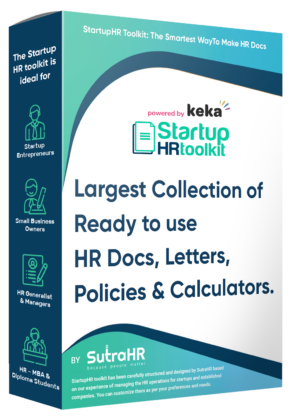
Download StartupHR Toolkit Instantly & Access Largest Collection HR Documents.
The only Toolkit to solve all your HR problems in minutes.
Legally compliant and govt approved HR documents.
24×7 customer support over chat & calls (during daytime).
FREE HR audit.
Up to date documents as per the latest Statutory Law.
3 FREE customized documents with Gold Plan.
Expert HR guidance.
Join a Community of 1,00,000+ HR Professionals


